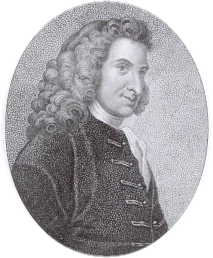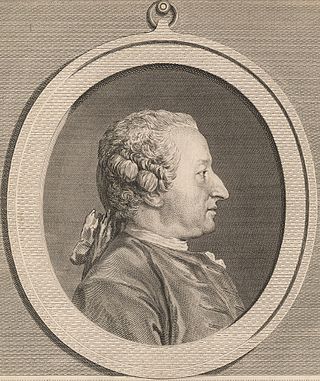Related Research Articles

Henry Fielding was an English novelist, irony writer, and dramatist known for earthy humour and satire. His comic novel Tom Jones is still widely appreciated. He and Samuel Richardson are seen as founders of the traditional English novel. He also holds a place in the history of law enforcement, having used his authority as a magistrate to found the Bow Street Runners, London's first intermittently funded, full-time police force.

The Scottish Enlightenment was the period in 18th- and early-19th-century Scotland characterised by an outpouring of intellectual and scientific accomplishments. By the eighteenth century, Scotland had a network of parish schools in the Scottish Lowlands and five universities. The Enlightenment culture was based on close readings of new books, and intense discussions which took place daily at such intellectual gathering places in Edinburgh as The Select Society and, later, The Poker Club, as well as within Scotland's ancient universities.

Alexis Claude Clairaut was a French mathematician, astronomer, and geophysicist. He was a prominent Newtonian whose work helped to establish the validity of the principles and results that Sir Isaac Newton had outlined in the Principia of 1687. Clairaut was one of the key figures in the expedition to Lapland that helped to confirm Newton's theory for the figure of the Earth. In that context, Clairaut worked out a mathematical result now known as "Clairaut's theorem". He also tackled the gravitational three-body problem, being the first to obtain a satisfactory result for the apsidal precession of the Moon's orbit. In mathematics he is also credited with Clairaut's equation and Clairaut's relation.

Philippe Néricault Destouches was a French playwright who wrote 22 plays.

Sir Charles Hanbury Williams, KB was a Welsh diplomat, writer and satirist. He was a Member of Parliament from 1734 until his death.

Sir John Hill was an English composer, actor, author and botanist. He contributed to contemporary periodicals and engaged in literary battles with poets, playwrights and scientists. He is remembered for his illustrated botanical compendium The Vegetable System, one of the first works to use the nomenclature of Carl Linnaeus. In recognition of his efforts, he was created a knight of the Order of Vasa in 1774 by Gustav III of Sweden and thereafter called himself Sir John Hill.

Roger Wolcott was an American weaver, statesman, and politician from Windsor, Connecticut. He served as colonial governor of Connecticut from 1751 to 1754.
John Bellers was an English educational theorist and Quaker, author of Proposals for Raising a College of Industry of All Useful Trades and Husbandry (1695).
Philippe Guéneau de Montbeillard also Philibert Guéneau de Montbeillard was an eighteenth-century French lawyer, writer, naturalist, and contributor to the Encyclopédie.
References
- 1 2 3 4 5 Stephen, Leslie, ed. (1885). "Bellers, Fettiplace". Dictionary of National Biography . Vol. 4. London: Smith, Elder & Co.
- ↑ Injur'd Innocence, a tragedy (1732).
- ↑ Baker, Reed & Jones. Biographia dramatica, volume 2 (Longman, Hurst, Rees, 1812) p. 324.
- ↑ Of the ends of society (1759).
- ↑ A delineation of universal law (1754).
- ↑ Lowndes, W. T. The bibliographer's manual of English literature, volume 1 (London : Bell & Daldy, 1869, 1869) p. 151.
- ↑ Allibone, S. Austin. A critical dictionary of English literature, volume 1 (Philadelphia : Childs & Peterson, 1859) p. 162.
- ↑ The Shiffner Archives (The National Archives).